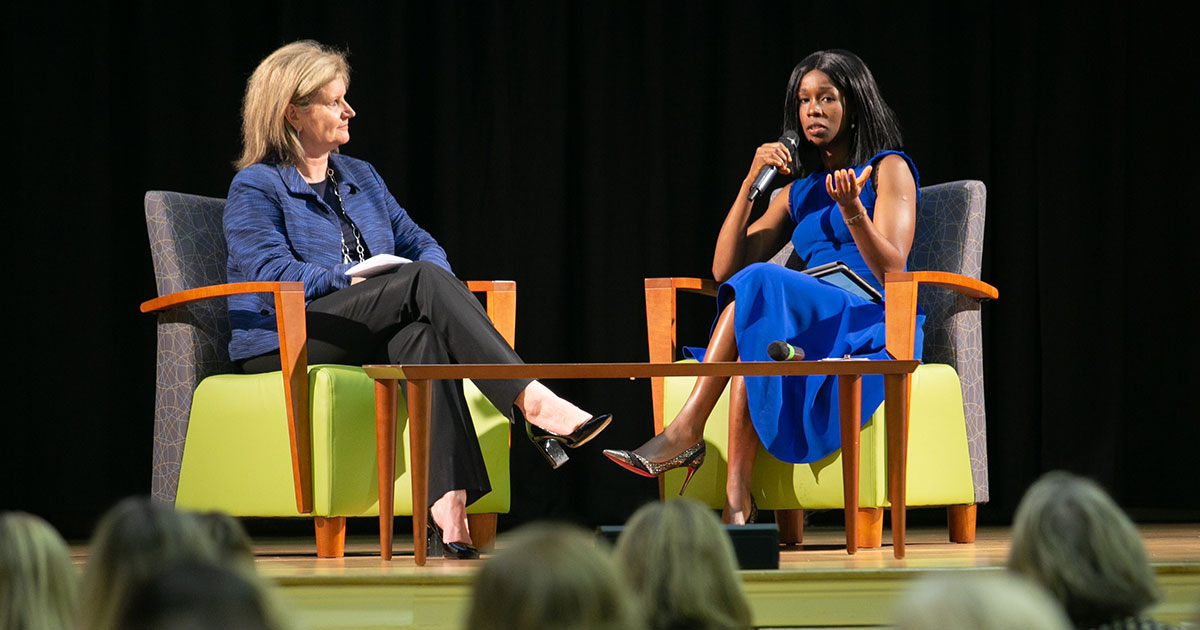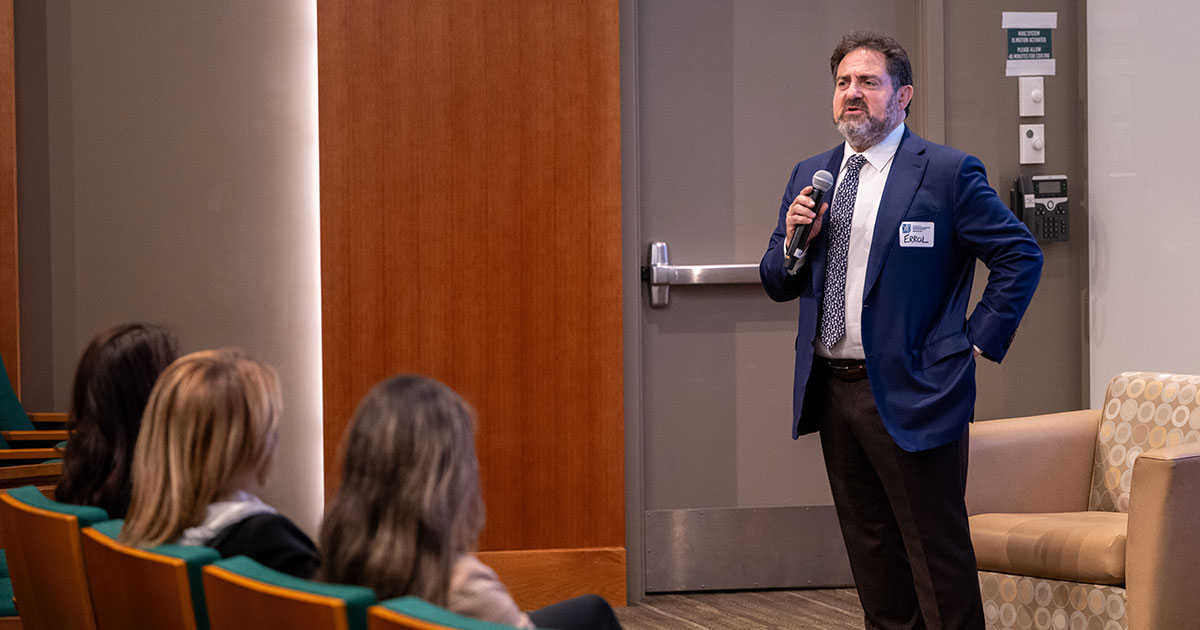Experts Gather at Babson to Disrupt Financing for Women Entrepreneurs

Companies with women CEOs receive less than 3 percent of all venture capital funding.
That alarming statistic was first revealed in a 1999 Diana Project study that was built to examine why women-owned businesses across the United States were smaller than those of their male counterparts.
Mostly overlooked by the broader investment community for over 10 years, the Diana Project team launched the same study in 2014 and published Women Entrepreneurs 2014: Bridging the Gender Gap in Venture Capital. Despite an entire decade passing, these researchers revealed that women CEOs were still receiving less than 3 percent of venture capital funding. A number that continues to remain the same, even today.
While the 1999 report was not widely consumed, the 2014 study’s results received 1 billion views, forcing the entrepreneurship ecosystem to take note. Since then, investment funds and training programs have popped up across the country with a focus on connecting women CEOs with the capital that they need to grow their businesses. Despite these efforts, we still see the same small percentage of venture capital funding going to women CEOs.
To develop a greater understanding of why this problem persists and what barriers we can collectively tackle in order the level the playing field for female founders, Babson’s Center for Women’s Entrepreneurial Leadership (CWEL) launched the Diana International Research Institute Impact Day. A first-of-its-kind event, Diana International Impact Day convened more than 250 investors, accelerators, policymakers, researchers, founders, and other disrupters dedicated to changing the landscape of financing women entrepreneurs by collectively developing creative solutions to one of the biggest financial opportunities of our time
Among the highlights of the day: the announcement of a new research project from Babson and Bank of America focused on the challenges outside of venture capital funding faced by women entrepreneurs whose businesses have surpassed $5 million in revenues.
Lessons From the Field
In the day’s opening fireside chat, Asmau Ahmed, founder of Plum Perfect, shared her experiences raising funds. Ahmed is one of just 34 black women who have raised more than $1 million in venture funding.
“I could never have imagined the funding journey we went on as a company,” she shared. Among the stops on that journey: A first-round investment that included a clawback clause. “It was not a true partnership. … It was them hedging against my success and failure.”
But, those experiences ultimately made Ahmed a better entrepreneur. “I would tell my younger self: the path will be windy, and messy at times,” she said. “And, that’s OK. The best way to learn is to fail. And, in that moment of failure, there is an opportunity for success.”
Throughout Diana Impact Day, panels and roundtable discussions harnessed the collective insights of all attendees in key areas of pipeline issues, implicit bias, collective problem solving, and linking research, practice, and policy.
The day also featured insights from investors and entrepreneurs leading the charge to diversify funding models.
“We need to create a broader, more inclusive investment community, to invest in a broader, more inclusive community,” said Natalia Oberti Noguera, founder and CEO, Pipeline Angels, in a panel discussion on new models and disruptions in financing women entrepreneurs. “I am committed to making sure we aren’t perpetuating the systems we are trying to disrupt.”
And, that revolution in funding—for women entrepreneurs of all kinds—must be financed, said Darryl Thompson, chief investment officer of New General Market Partners and managing partner of the New Voices Fund, in the afternoon keynote. The New Voices Fund, a $100 million fund created to empower women of color entrepreneurs to reach their full potential, is the brainchild of Richelieu Dennis ’91 and a strong example of how disruption in the financing model can create more access and opportunity.
The day’s energy, insights, and efforts will culminate in a report by Babson’s Center for Women’s Entrepreneurial Leadership, disseminated publicly and utilized to ensure the funding needle moving upward for all women looking to raise capital for their companies.
And, while the report is being assembled, stakeholders pledged to create their own impact. By day’s end, Diana Impact Day stakeholders committed to do their part in ensuring that women entrepreneurs are empowered to grow scalable businesses. Said Susan Duffy, executive director of Babson’s Center for Women’s Entrepreneurial Leadership and co-founder of Impact Day: “From disseminating content and dismantling bias to writing checks and celebrating alternative sources of funding, participants left the room ready to take action.”
Posted in Community



